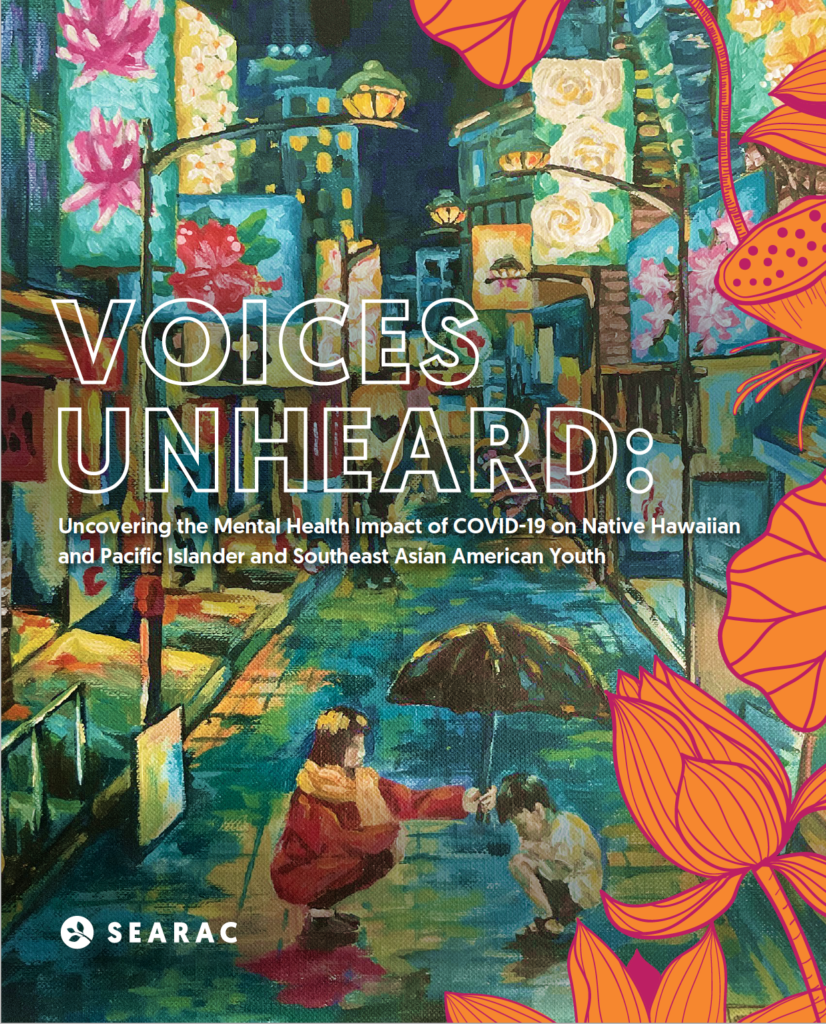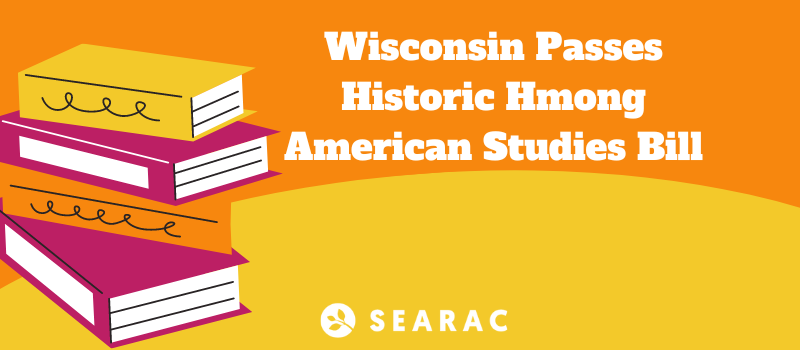July 26, 2023 IN: Press Room
Southeast Asian American and Native Hawaiian Pacific Islander Youth Mental Health Research Report Outlines Recommendations for a Post-Covid 19 Era
Sacramento, CA– The Southeast Asia Resource Action Center (SEARAC) is proud to announce the release of Voices Unheard: Uncovering the Mental Health Impact of COVID-19 on Native Hawaiian and Pacific Islander and Southeast Asian American Youth. Written in collaboration with researchers from Illinois and Maryland whose work focuses on racially marginalized groups – such as Native Hawaiian and Pacific Islander communities and Southeast Asian refugee populations – and the Asian American and Pacific Islander Coalition Helping Achieve Racial and Gender Equity (AAPI CHARGE), the report highlights the experiences of more than 200 respondents and focuses on Native Hawaiian and Pacific Islander (NHPI) and Southeast Asian American (SEAA) youth.
Topics include the pandemic’s effect on mental wellness, the importance of culturally appropriate mental health support, and SEARAC’s recommendations to reduce barriers to mental health care in California. Additionally, Voices Unheard helps bridge the gap of research that focuses on the mental health status of often marginalized AANHPI ethnicities.

Report design by LaBang Studio. Artwork by PawPaw Wah.
SEARAC and AAPI CHARGE led the research project with researchers through a survey and focus groups in fall 2021. AAPI CHARGE created a mental health survey with multiple choice and open-ended questions directed at AANHPI youth. Additionally, SEARAC partnered with Los Angeles-based Empowering Pacific Islander Communities (EPIC) and Long Beach, CA-based Educated Men with Meaningful Messages (EM3), a program of Families in Good Health, to conduct virtual focus groups of a total of 26 SEAA and NHPI participants to better understand the mental health challenges and experiences during the pandemic.
“COVID-19, alongside rising anti-Asian hate and the racial reckoning during this time, deeply affected students’ and young people’s mental wellbeing,” said Mandy Diêc, CA deputy director of SEARAC. “It is critical to uplift the experiences of SEAA and NHPI youth, who are often invisibilized under the larger AANHPI umbrella. Our communities’ histories are tied to colonization, forced migration, war, and violence. In the last few years, challenges faced during the pandemic also intersected with SEAAs’ experiences with intergenerational trauma, poverty, criminalization, low education attainment, and inappropriate health care. The unique mental health challenges that SEAA and NHPI youth face cannot continue to be overlooked.”
“The AANHPI youth mental health report comes at a critical time post-pandemic to illustrate the mental health needs of youth in our communities,” said Karla Thomas, deputy director of EPIC. “NHPI youth and families in California bore the brunt of not just COVID-19, but concurrent climate and economic crises. This report offers recommendations based on these impacts that decision-makers should use to address the mental health inequities of SEAAs and NHPIs through policy change and investment in direct service organizations.”




